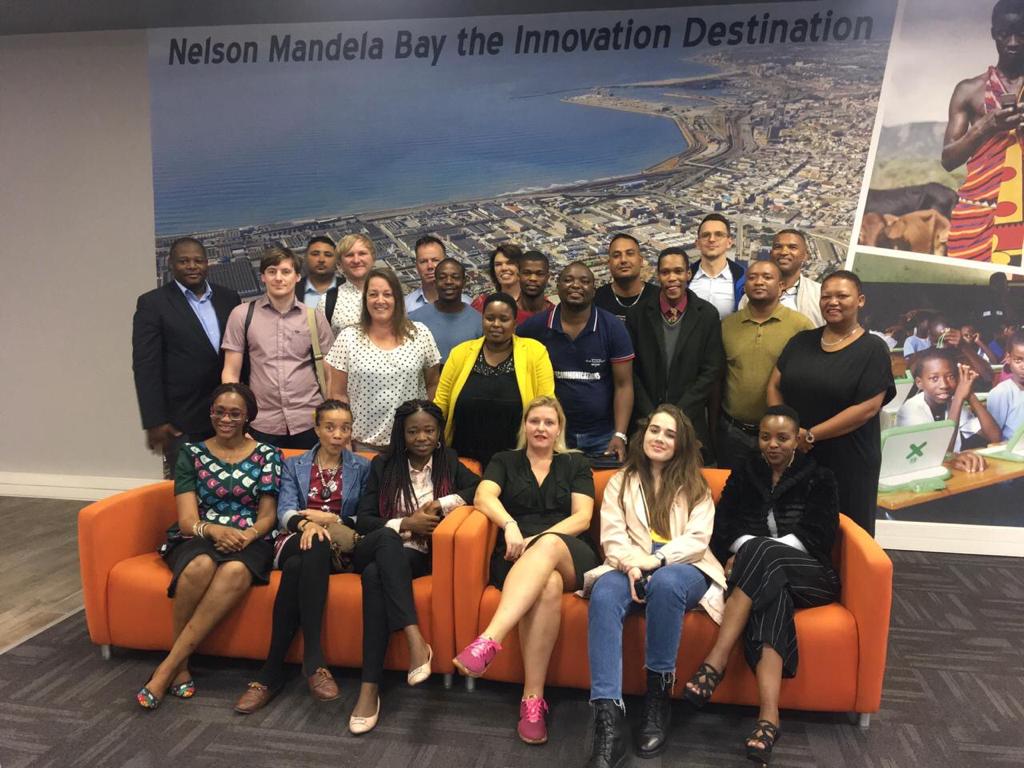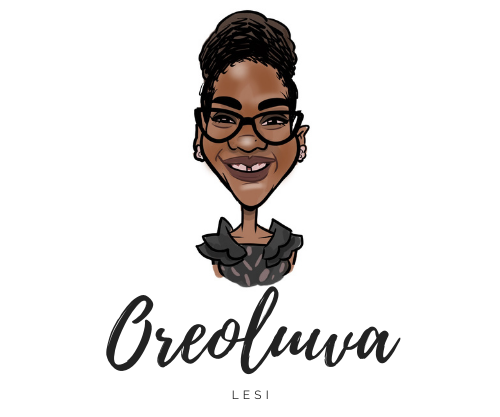I learnt a song when I was younger and the chorus rang “It’s a small world after all…” I can’t remember any of the other words.
These lyrics came back to me when I visited Port Elizabeth in South Africa, as part of a study visit for the Digital Generation Youth project on which my organisation, W.TEC is a partner.
Digital Generation Youth is a 2-year project aimed at developing new content, methods and activities to improve the quality of youth non-formal learning programmes for organisations in Nigeria, South Africa, Lithuania and the Netherlands. All partner organisations are delivering non-formal digital literacy and 21st century education programmes to young peoples.

Visit of the DGY project to iHub, Port Elizabeth
So the first part of this project was for all partner organisations to meet each other and learn more about our respective programmes and cultural contexts. We started to do this in the cosy guest house, which we called home for the week.
I learnt that:
- The Dutch are fanatical about being on time
- Basketball is practically a religion in Lithuania
I even learnt that apparently Nigeria has the most diverse butterfly population in the world (who knew)…
A major part of the week was our visit to a selection of organisations working with youth in various ways:
- Masifunde: A nonprofit based in the Walmer township and providing skills building (in digital literacy, entrepreneurship, creativity) to academic support and social assistance.
- Uviwe: A youth centre providing a safe space for young people from kindergarten upwards.
- iHub: A co-working space and incubator of high-potential technology businesses.
- Ubuntu: A truly amazing space that offers cradle to career support i.e. they take babies practically from their mother’s wombs and educate them, provide medical services and equip them with the necessary skills to live financially empowered and healthy lives.
- The Propella: Incubates businesses. I didn’t get the chance to visit this place, so can’t say more.
- Ready 4 Life: This was our host organisation and they run a spectrum of trainings for young people from digital literacy to entrepreneurship and maintaining computer labs for schools.
Listening to the Managing Director, Jonas Schumacher, talk about the challenges they have experienced running their afterschool technology club – including having access to a functional computer lab, the logistics of making sure the students are at the club on time, sometimes apathetic school authorities – was so reminiscent of the problems we have also faced. I marveled that an organisation in a country that is in many ways more developed than Nigeria is, still faces the very same problems we do.
Then we got to Uviwe and I was moved by the obvious love the staff had for the children and youth in their care. They got such joy from their work that I was reminded that working in the youth development and nonprofit space is akin to a calling. Not everyone can do this work. Period.
At iHub, I was reminded of the importance of social connections and how that offhand chat can spark off earth-shaking ideas. The people we met there whose businesses are incubated there are passionate about growing their visions and having them produce services and tools of value to the world.
On the last but one day, my colleague from W.TEC, Shade, along with Anna, Marja and Avril (our lovely project partners from the Netherlands and South Africa) delivered a training on technology for female entrepreneurs at the Chatty Community Center. We highlighted how digital tools can help them better project their businesses to the world and connect with potential clients.
Again I was struck by the things women have in common across the world. A few women were at the workshop to find out how to leverage on technology to find jobs. However, as the class discussion progressed and the project breakouts started, we discovered that at least two of them actually ran thriving businesses. So we asked: Why do you want to go and work for someone when you have this enterprise that is not only bringing in income but even providing employment for others?
When the ladies shot their promotional videos for their businesses, it was obvious from their body language that something had already shifted for many of these women. We were there to talk technology, but ended up going beyond that.
Technology provides tools to help us do better and do more, however in my opinion, when you also leverage on your interpersonal skills and draw from your social context, technology is a sharper tool for empowerment. And this is the component added by the second part of the Digital Generation Youth project: the use of Digital Open Badges.
Digital Open Badges are ways to recognise learning and experience achieved by completing some set activities. For every organisation we visited, we had the chance to earn a badge by providing evidence of what we had learnt (see our playlist of activities for which you can earn badges).
In the 4th Industrial Revolution-based society, where what you know and how fast you can learn new things is more important than amassing certificates from formal institutions of learning, digital open badges might emerge as an important way to signal learning and proficiency.
So I am looking forward to the rest of this project and exploring new ways to prepare our girls at W.TEC for an unarguably exciting and unpredictable future.

Recent Comments